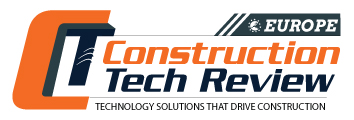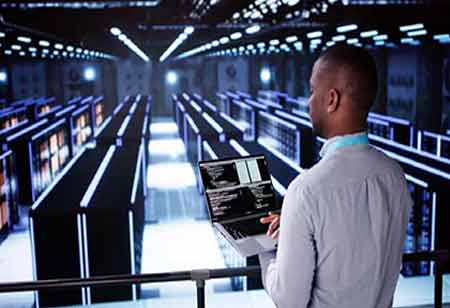THANK YOU FOR SUBSCRIBING

Enhancing Construction Space with Remote Working and Technology
Mitch O’Dell, Director of Information Technology at Shimmick Construction

 Mitch O’Dell, Director of Information Technology at Shimmick Construction
Mitch O’Dell, Director of Information Technology at Shimmick ConstructionMitch O'Dell is currently the Director of Information Technology at Shimmick Construction, where he plays a crucial role in building and leading the IT Organization for the newly established company. With a wealth of experience in the industry, Mitch has collaborated closely with the new ownership to devise and execute a comprehensive technology transition plan, enabling the creation of a standalone construction organization.
What are some recent trends and challenges prevailing in the IT market, and how is it impacting the space?
One of the significant challenges currently prevailing in the industry is finding the right talent and ensuring that the right people are in the right roles. Another significant challenge is adapting to remote work, a prevalent trend following the COVID-19 pandemic. While some companies are attempting to return to a pre-pandemic office environment, it may only partially be successful. However, in the construction industry, remote work was already a part of the business due to the distributed nature of job sites.
Transitioning to remote work was comparatively more manageable in this industry. There are still concerns and a desire to return to office-based work, but embracing the new culture and remote work has helped overcome staffing challenges. By having IT staff located across the country, the industry has maintained productivity and achieved more with fewer resources. This is possible because individuals in the team have multiple responsibilities, allowing for greater efficiency and value in embracing the remote work model.
While embracing these remote models, what are some of the technological or process elements leveraged to navigate the upcoming remote environment?
In the construction industry, we put a trailer out in the field while doing our construction work. It is imperative to ensure that those trailers are connected to our network and infrastructure so they can have access to emails and internal systems. For approximately two decades, we have utilized our expertise to enable our staff to work efficiently from these job sites, unrestricted by location. By embracing advanced technology and cloud-based approaches, our operations have become predominantly cloud-based, with approximately 80 percent of our infrastructure in the cloud. This has allowed us to remain agile while utilizing tools like Microsoft Azure, Office 365, SaaS (software as a service) platforms, and cloud-based backup and recovery strategies. As a result of these technological advancements and our effective remote work model, we successfully decoupled from the traditional office setups throughout the COVID-19 pandemic.
With all these technological advancements, how do you envision the future of the construction industry?
Given the rapid evolution of technology, the future remains highly unpredictable, and each year brings new challenges for companies. The nature of these challenges varies depending on the maturity level of the company and the available resources to address them. No universally applicable solution fits every company's needs. The transition process depends on the company's unique journey, the resources at its disposal, and the measures taken to adapt and overcome these challenges.
“In the construction industry, remote work was already a part of the business due to job site distribution. Transitioning to remote work was comparatively easier in this industry.”
However, one aspect that appears to be here to stay is the “Working-From-Anywhere” model. The country is poised to embrace this paradigm by incorporating more advanced technology and implementing effective remote strategies.
What would be your piece of advice for your peers and aspiring professionals in the industry?
The first piece of advice would be for professionals to manage the ROI of their technology investments. ROI is not just about the money but an organization's holistic and overall perspective and on what they receive from that investment. An organization stays in profit when the leaders see everything holistically and manage accordingly.
I advise people to know their organizations' unique needs and requirements so they can anticipate the technological strategies or process changes needed to overcome unexpected disruptions.
Read Also
Where Safety Really Lives: Between the Plan and the Jobsite
Accelerating the Shift Toward Data-Led Construction Excellence
Building Projects Through People, Planning and Culture
Innovating the Future of Construction: Insights From Power Design's Leadership
Advancing Construction with Technology and Care
Technology as a Strategic Advantage in Preconstruction

 Copyright © 2026 All Rights Reserved | by:
Copyright © 2026 All Rights Reserved | by: Construction Tech Review
| Subscribe | About us | Sitemap| Editorial Policy| Feedback Policy










